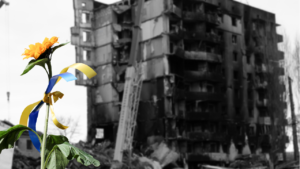I have written two posts over the past couple of years about Rwanda — specifically about that country’s attempts to get connected to the rest of the world [Wiring Rwanda to the World and Update on Wiring Rwanda to the World]. In the first post, I wrote: “In the panoply of nations, Rwanda stands out as one nation which has suffered through a number of calamities including civil war and genocide. Characterized by a treacherous, if beautiful, terrain, Rwanda is one of the most disconnected nations on earth. In fact, by most measures, Rwanda is an underdeveloped, if not failing, state.” That post was about Greg Wyler, a 36-year-old American tech entrepreneur who had big dreams about connecting Rwanda to the rest of the world. His dream started when he met the chief-of-staff for Rwanda’s president, Paul Kagame, at a wedding and the chief-of-staff invited him to visit his country. Wyler accepted the invitation and once in Rwanda met with Kagame. President Kagame, knowing that Wyler had made his fortune in the tech sector, asked him for his opinion about a $50-million project to bring Internet service to Rwandan schools via satellite. Wyler’s advice: Don’t do it. Satellite service is costly, slow, and unreliable. Kagame scuttled the satellite plan and urged to Wyler to take on the project of wiring the schools with fiber. Wyler accepted. Unfortunately, as I noted in my second post, things have not gone well.
Rwandan officials complain that Wyler’s company, Terracom, quickly refocused on the more lucrative cellphone market once it learned how difficult being an Internet service provider proved to be. Wyler actually stepped down as chief executive of Terracom in November 2006. Wyler indicated that he had underestimated the technical challenges of connecting Rwanda to the rest of the world. Even though he persuaded President Kagame to abandon his satellite plan, Wyler, in the end, admitted that the only way to do it is to buy bandwidth capacity on satellites. Unfortunately, there are not enough satellites to meet demand and the service remains costly. I review those posts because they set the stage for a recent op-ed column by David Ignatius [“A Past at Rest in Rwanda,” Washington Post, 29 May 2008]. Ignatius doesn’t discuss Rwanda’s ambition to connect to the Internet; rather, he talks about how President Kagame has managed to maintain security and move Rwanda beyond thinking about its brutal recent history.
“It happened just 14 years ago — the slaughter of roughly a million people here in only 100 days. ‘More people had been killed more quickly than in any other mass killing in recorded history,’ writes Martin Meredith in his book ‘The Fate of Africa.’ And yet today there are few visible traces of the genocide that began in April 1994. It’s not that Rwandans have forgotten, but that they seem to have willed themselves to live in the present. That makes this place feel different from other post-conflict states I know, such as Iraq and Lebanon, where the past and present are congealed in a wound that never heals.”
Much of credit must go to President Kagame, who Ignatius describes as, “a Tutsi who led the armed revolt that ended the genocide on July 4, 1994, [and] rules the country now with a firm hand — maintaining order here even at the occasional cost of human rights.” Kagame has an interesting history. He was forced to flee Rwanda as a child and was raised in Uganda, where he eventually joined a Uganda rebel group that helped bring Yoweri Museveni to power. He then joined with other Tutsi refugees to form the Rwandan Patriotric Front (RPF), the group he eventually led to victory in Rwanda. Kagame has always stressed discipline. In the book Coercive Inducement and the Containment of International Crises [Donald C.F. Daniel, Bradd C. Hayes with Chantal de Jonge Oudraat], it notes, “Although only in his thirties during the crisis, Kagame was ‘demanding’ and ‘obsessed with discipline in the ranks.’ Kagame’s stress on discipline may have been a result of the fighting in 1990 when ‘both sides behaved atrociously, murdering civilians of the wrong tribe and inciting villagers to do likewise.'” During the dark days of the 1994 crisis, Kagame learned the importance of connectivity. He maintained his control by constantly moving to check on his troops and always traveling with a cellphone. The people of Rwanda generally tolerate Kagame’s firm rule because, unlike their neighbors in Burundi, Uganda, and the Democratic Republic of the Congo, they feel secure. It is this security that has allowed them to move forward. Ignatius continues:
“During a week spent traveling the country, I found that Rwandans rarely brought up the events of the past. They almost never named the ethnic groups involved in the 1994 genocide — the Hutu perpetrators and the Tutsi victims. Expatriates would speak a kind of code, referring to ‘H’s’ and ‘T’s.’ At the Hotel des Mille Collines, made famous by the movie ‘Hotel Rwanda,’ you try to imagine the desperate refugees crammed together in a space that now features a fitness club and a poolside bar with live music. But here, again, the present has obliterated the past. Trying to fall asleep, you think how big the bedroom is, how many more people it could hold.”
Although Rwandans might not speak often of the past, Ignatius reminds us that the horrors of those days should not be forgotten. He reminds us of how bad they were.
“A glimpse into the horror came from a family friend, Antoine Rwego. The Rwegos were Tutsis, the tribe that was favored by the Belgian colonizers but then repressed by the Hutu majority after independence in 1962. His father was a veterinarian; his mother worked in a bank. They were part of a privileged minority, so they were targets. Rwego remembers when the massacres began on April 7, 1994. Soldiers came looking for his father, but he was away. Rwego, then 16, escaped over the wall to the house of a Hutu neighbor who had married a Tutsi. His 12-year-old sister and 10-year-old brother were not so lucky. They were murdered by armed men who invaded the family compound. Rwego heard the screams next door, but he could do nothing. After several days, young Rwego fled the neighborhood and miraculously found his father. They hid in another part of town until May, when someone from his old district chanced to see them. On May 16, his father was tricked out of hiding on the pretext that he was needed for a medical emergency. He never came back. For Rwego, it was not a question of forgetting but of continuing: ‘Why had I remained alive? So that I should do something for others.’ He got top grades in school, earned a medical degree and now is a doctor with Rwanda’s national AIDS research organization. He is a reserved, stoical man, like most Rwandans I met, but as he told this story, he brushed a tear from one eye.”
The story of Rwanda is a story of hope. It should provide every war torn nation a glimpse of a future where opposing sides of civil war put aside differences and work for a brighter future. Rwanda is not perfect — far from it. It still has mountains to climb — thousands of them. But the bedfellows of security and hope spur them on. Ignatius concludes:
“Rwanda is again a bright, tidy spot in the center of Africa, and people talk of an economic boom. As my friend Dr. Rwego says, it is a question of breaking free from your history, even when you hear in your mind the cries of your brother and sister: ‘To stay in the things of the past, it prevents you from changing.'”
Breaking free from history may be one of the hardest things for human beings to do. It was history that broke apart Yugoslavia. It is history that keeps the Israeli/Palestinian crisis festering. One can still drive through America’s south and find those who are still fighting the Civil War. I’m sure that Rwanda’s recent genocidal history smolders beneath quiet demeanor of many a citizen (both Hutu and Tutsi), but they should be applauded for accomplishing what so few societies have been able to do in so short a time. In another post, I’ll examine the role of Rwanda’s women and how they have emerged as a potent economic force.




